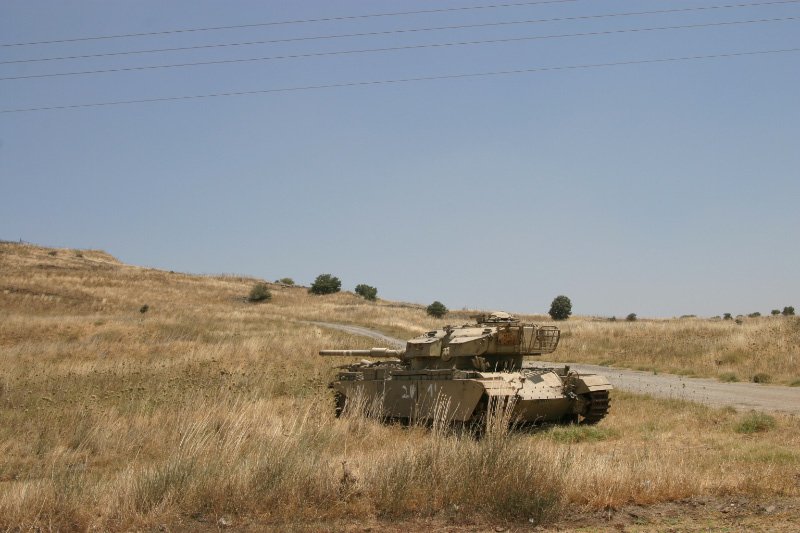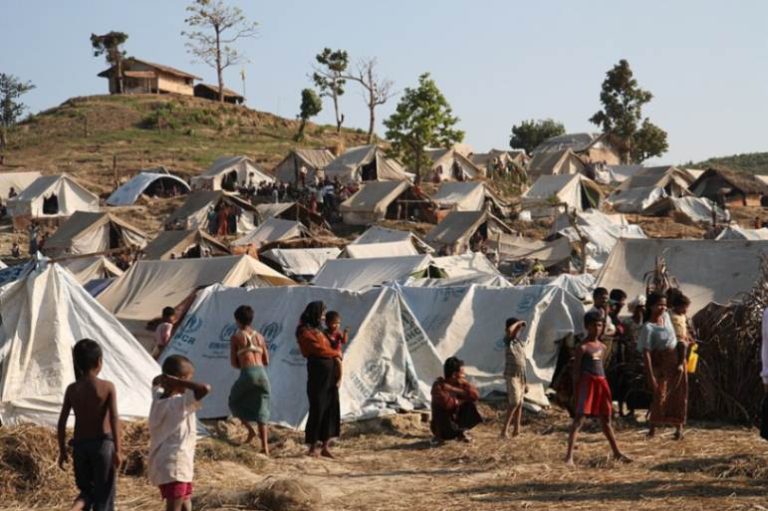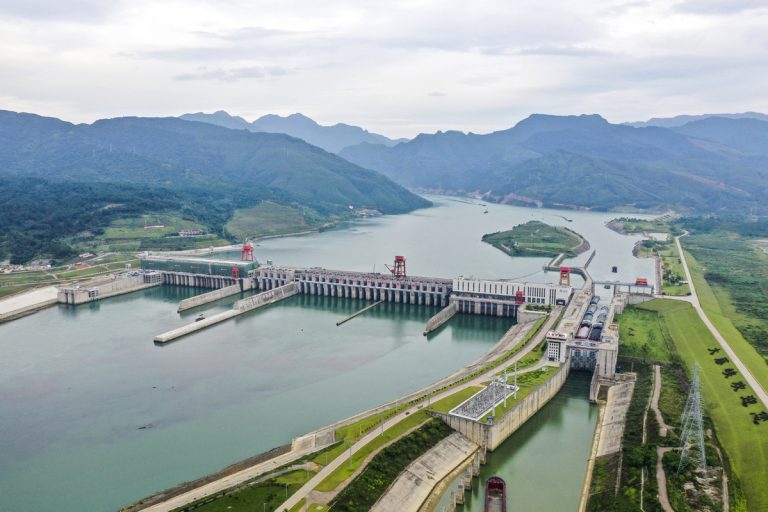
Photo by Shmuel Spiegelman, via Wikimedia Commons
On Nov. 28, 2023, the United Nations General Assembly (UNGA) adopted Resolution 78/11, titled ‘The Syrian Golan.’ The resolution reiterated the UNGA’s support for the restoration of Syrian sovereignty over the Israeli-occupied Golan Heights and called upon Israel to withdraw from the occupied territory under the terms of relevant United Nations Security Council (UNSC) Resolutions, including Resolution 242 and 497. Bangladesh, along with 90 other member-states of the United Nations (UN), voted in favour of the resolution. Incidentally, the adoption of the resolution has occurred amidst the ongoing brutal Israeli military campaign against the Palestinians in Gaza, which Bangladesh has condemned in explicit terms.
Under international law, the Golan Heights constitutes a part of the Syrian Arab Republic. During the Arab–Israeli War of 1967, Israel occupied the western two-thirds of the Golan, and since then, it has been administering the region. The war resulted in the exodus of between 80,000 and 131,000 Syrian Arabs from the Israeli-occupied parts of the Golan, and in the following years, Israel settled thousands of its citizens in the territory. On 14 December 1981, the Israeli Knesset ratified the Golan Heights Law, effectively annexing the territory. On 25 March 2019, the United States of America (USA) recognized the Israeli annexation of the Golan.
However, Israeli control over the Golan does not have any legal basis under the terms of international law. The UNSC, the UNGA, and the International Court of Justice (ICJ) view Israeli control over the Golan Heights as illegal and Israel as an ‘occupying power’ in the Golan. Except for the USA, no other state, including Israel’s other closest allies, has recognized the Golan as an Israeli territory. Nonetheless, the Golan contains significant military-strategic, economic, and political value for Israel, and therefore, Israel has so far refused to relinquish its control over the occupied territory.
Bangladesh, as a responsible and law-abiding member of the international community, has consistently supported the Arab struggle against Israeli imperialism and occupation. During the Bangladeshi War of Independence in 1971, Israel had offered to provide military aid and diplomatic support to the Bangladeshi independence movement, but Bangladesh refused to accept Israeli assistance, demonstrating its solidarity with the Arabs and the Palestinians suffering under Israeli occupation. Moreover, Bangladesh actively backed the Arab efforts to nullify the Israeli occupation of Arab territories, including the Golan, by sending a medical team of the Bangladesh Army to assist the Arabs during the Arab–Israeli War of 1973. Bangladesh has been training the troops of the Palestine Liberation Organization (PLO) in the Bangladesh Military Academy (BMA) in Chattogram since the 1980s. Bangladesh recognized Palestine as an independent state on 16 November 1988, just a day after the proclamation of the Palestinian Declaration of Independence.
Thus, Bangladesh has traditionally maintained a principled opposition to Israeli occupation of Arab territories and their oppression of the Arabs and the Palestinians. Under this context, the Bangladeshi decision to vote against Israel at the UNGA should be understood through the following interrelated factors.
First, according to Article 25 of the Constitution of Bangladesh, the country is obliged to support oppressed peoples throughout the world in their struggles against imperialism, colonialism, and racialism. Continued Israeli occupation of the Golan, East Jerusalem, and large parts of the West Bank represents Israeli imperialist policies against the Arabs. The expansion of Israeli settlements in the occupied territories, including the Golan, symbolizes Israeli settler-colonialism. The systematic Israeli discrimination against and oppression of the Arabs in the occupied territories, including the Golan, epitomizes Israeli racism. Hence, Bangladesh is constitutionally and legally duty-bound to oppose the Israeli occupation of Arab territories, including the Golan. By voting for the UNGA resolution on the Golan, Bangladesh has fulfilled its constitutional and legal duty.
Second, Bangladesh is an enthusiastic UN member-state. According to Article 2(4) of the UN Charter, every member-state of the UN should refrain from using force in international relations against the territorial integrity of other member-states. Israel and Syria are both UN member-states, and Israel is forcibly occupying the Golan, a Syrian territory. Thus, Israel is violating the provisions of the UN Charter. Moreover, Bangladesh is a Muslim-majority state and an active member-state of the Organization of Islamic Cooperation (OIC). According to Article 1(4) of the OIC Charter, the member-states are obliged to support the restoration of territorial integrity of member-states whose territory is under occupation. Syria, an OIC member-state, is seeking to restore its territorial integrity by de-occupying the Golan from Israel. As a member of the UN and the OIC, Bangladesh is obliged to oppose continued Israeli occupation of the Golan. Hence, by voting in favour of the aforementioned UNGA resolution, Bangladesh has fulfilled its international duty.
Third, Bangladesh is strictly opposed to the violation of the sovereignty and territorial integrity of states by other states on moral and political grounds. Sovereignty and territorial integrity constitute the core values of any state. Owing to the intensification of the Sino–US geopolitical confrontation in the Indo-Pacific region, Bangladesh has found itself as a ground for competition among great and regional powers. Amidst this situation, Dhaka is highly sensitive about potential infringements upon the sovereignty and territorial integrity of states. Continued Israeli occupation of the Golan is a clear violation of Syrian sovereignty and territorial integrity. Accordingly, by opposing the Israeli occupation of the Golan, Bangladesh has expressed its moral support for the values of sovereignty and territorial integrity of states and implicitly indicated its opposition to infringements upon its sovereignty by other states.
Lastly, Bangladesh shares strong historical, political, economic, and cultural ties with the Arab states of Western Asia and Northern Africa. All the Arab states have voted for the UNGA resolution, and even those Arab states that have normalized relations with Israel, including Egypt, Jordan, the United Arab Emirates (UAE), and Bahrain, did not side with Israel on this matter. As mentioned earlier, Bangladesh has been a consistent supporter of the Arab struggle against Israeli occupation. Moreover, the resolution has been brought up at a time when Israel is conducting a genocidal military campaign against the Palestinians in Gaza. According to the Palestinian Ministry of Health in Gaza, so far at least 15,500 Palestinians, predominantly civilians, have been killed by Israeli airstrikes and ground attacks. Furthermore, Israel is contemplating the creation of a ‘buffer zone’ and the de-militarization of Gaza, and the realization of this plan would result is a ‘soft occupation’ of Gaza by Israel. Gaza constitutes a part of the territory of the independent Palestinian state.
Thus, while occupying the Golan, East Jerusalem, and most of the West Bank, Israel is planning to indirectly occupy another territory from an independent state. Amidst this situation, following its traditional policy of solidarity with the Arabs and the Palestinians, Bangladesh voted in favour of the UNGA resolution on the Golan. This would contribute to the further enhancement of Arab–Bangladeshi ties, and increase Bangladesh’s ‘soft power’ at the international level.
Thus, by supporting the international call for Israeli withdrawal from the occupied Golan Heights, Bangladesh has fulfilled its constitutional, legal, and international duties, expressed its moral and political support for the values of sovereignty and territorial integrity, and demonstrated its solidarity with the Arabs suffering from Israeli imperialism and occupation. Therefore, Bangladesh’s principled opposition to the Israeli occupation of the Golan is commendable both in practical and moral terms.




